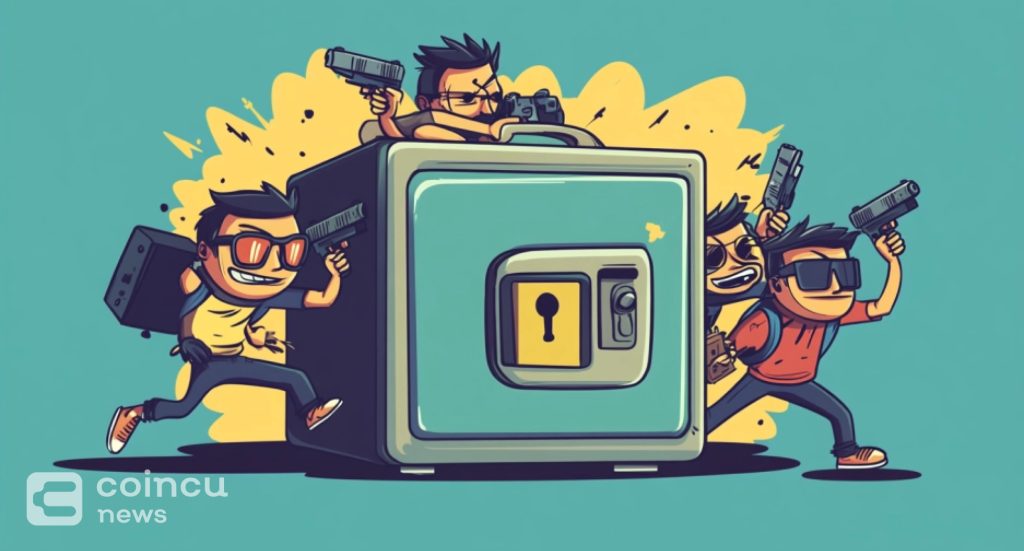Cryptocurrency empowers users with full control over their financial assets, but that freedom comes with significant responsibility—especially regarding security. If your crypto is lost or stolen, it’s nearly impossible to retrieve. That’s why securing your digital assets should be your top priority.

In this guide, we’ll walk you through essential best practices to protect your cryptocurrency from common threats and ensure your investments stay safe.
Why Securing Your Crypto Matters
With the growing popularity of cryptocurrencies, hackers have become increasingly interested in targeting users. In 2022 alone, over $1.1 billion in cryptocurrency was stolen through various hacks and scams. Cryptocurrencies are valuable, and unlike a credit card or bank account, there’s no insurance or fraud protection for your funds if they’re stolen.
According to Chainalysis, phishing attacks and exchange hacks are among the top causes of crypto theft, with phishing attacks accounting for 22% of stolen crypto. Whether it’s through hacking, phishing scams, or human error, your digital assets are always at risk if you don’t take the proper precautions.
Best Practices for Crypto Safety
Let’s dive into the most effective methods you can use to protect your cryptocurrency from theft, fraud, and other risks.
1. Use a Strong and Unique Password
This may seem obvious, but many people overlook the importance of strong passwords. For any cryptocurrency exchange or wallet, you need to create a password that is both unique and difficult to guess. Avoid using the same password across multiple platforms, as this makes it easier for hackers to gain access to your assets if one account is compromised.
Consider using a password manager to generate and store complex passwords. Additionally, always enable two-factor authentication (2FA), which adds an extra layer of protection by requiring a second verification method (like a code sent to your phone) in addition to your password.
2. Store Private Keys Securely
Your private keys are essentially the “password” to access your cryptocurrency. Anyone with your private key has full control of your funds, so storing them securely is crucial. Never keep your private keys online or in cloud storage—this makes them vulnerable to hacking.
3. Use a Hardware Wallet or Cold Storage
For the highest level of security, you should store the majority of your cryptocurrency in a hardware wallet or other cold storage options. A hardware wallet is a physical device that stores your private keys offline, making it nearly impossible for hackers to access them remotely.
Cold storage is especially important if you’re holding a large amount of cryptocurrency. Keeping your assets on an exchange leaves them vulnerable to exchange hacks, which have occurred multiple times in the past. While hot wallets (online wallets) are convenient for daily transactions, cold storage is your best bet for long-term holding.
4. Be Wary of Phishing Attacks
Phishing attacks are one of the most common ways hackers attempt to steal cryptocurrency. These attacks usually come in the form of fake emails or websites that look identical to legitimate exchanges or wallets. They trick you into entering your login credentials, giving the hacker access to your accounts.
Always double-check the URLs of websites you visit, especially when logging into an exchange or wallet. Be suspicious of any unsolicited emails that ask for your personal information or direct you to click on a link. To stay safe, bookmark the official websites of your exchanges and wallets, and use trusted antivirus software to help detect phishing attempts.
Additional Security Tips
Here are a few more tips to keep your crypto assets safe:
1. Keep Software Up-to-Date
Your cryptocurrency wallet and any associated software, like browsers or mobile apps, should always be updated to the latest version. Software updates often include important security patches that protect you from the newest threats. Failing to update your software can leave vulnerabilities open for hackers to exploit.
2. Use Multi-Signature Wallets
If you’re looking for an extra layer of protection, consider using a multi-signature (multisig) wallet. These wallets require more than one private key to authorise a transaction. For example, a multisig wallet could require two out of three signatures to move funds. This feature ensures that even if one private key is compromised, a hacker can’t transfer your funds without the other required keys.
3. Diversify Where You Store Your Crypto
It’s never a good idea to put all your eggs in one basket, and the same goes for cryptocurrency. By diversifying where you store your digital assets, you minimise the risk of losing everything in the event of a hack or breach. You can keep a portion of your crypto in a hardware wallet, some in a multisig wallet, and a small amount in a hot wallet for daily transactions.
Conclusion
In the world of cryptocurrency, your responsibility for security lies in your hands. Take the necessary precautions to safeguard your investments and protect your financial future.
| Disclaimer: The text above is an advertorial article that is not part of Coincu.com editorial content. |




